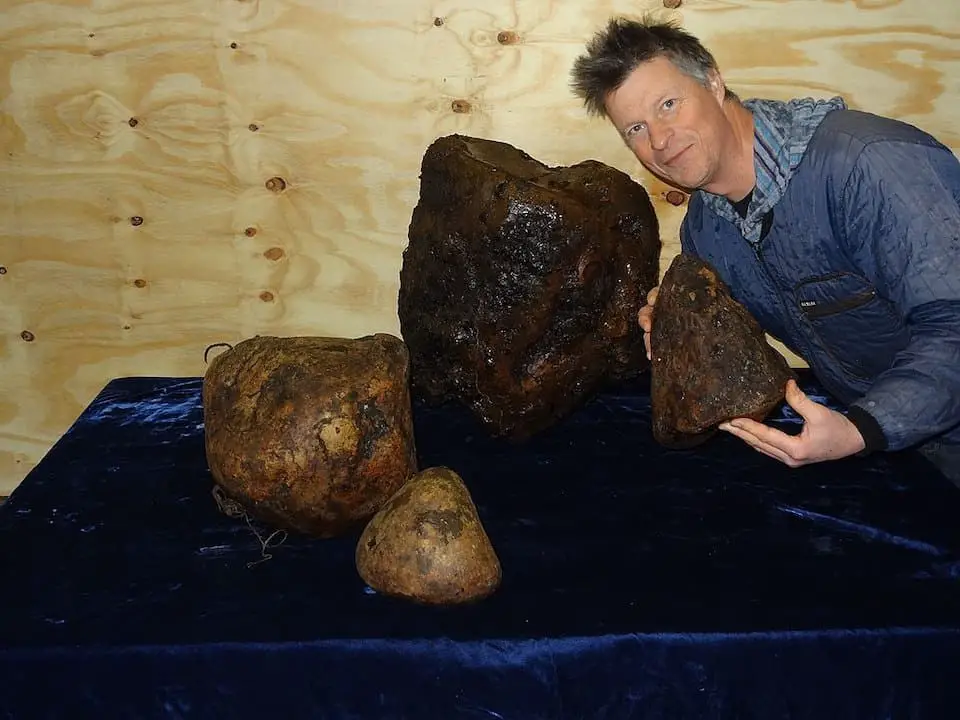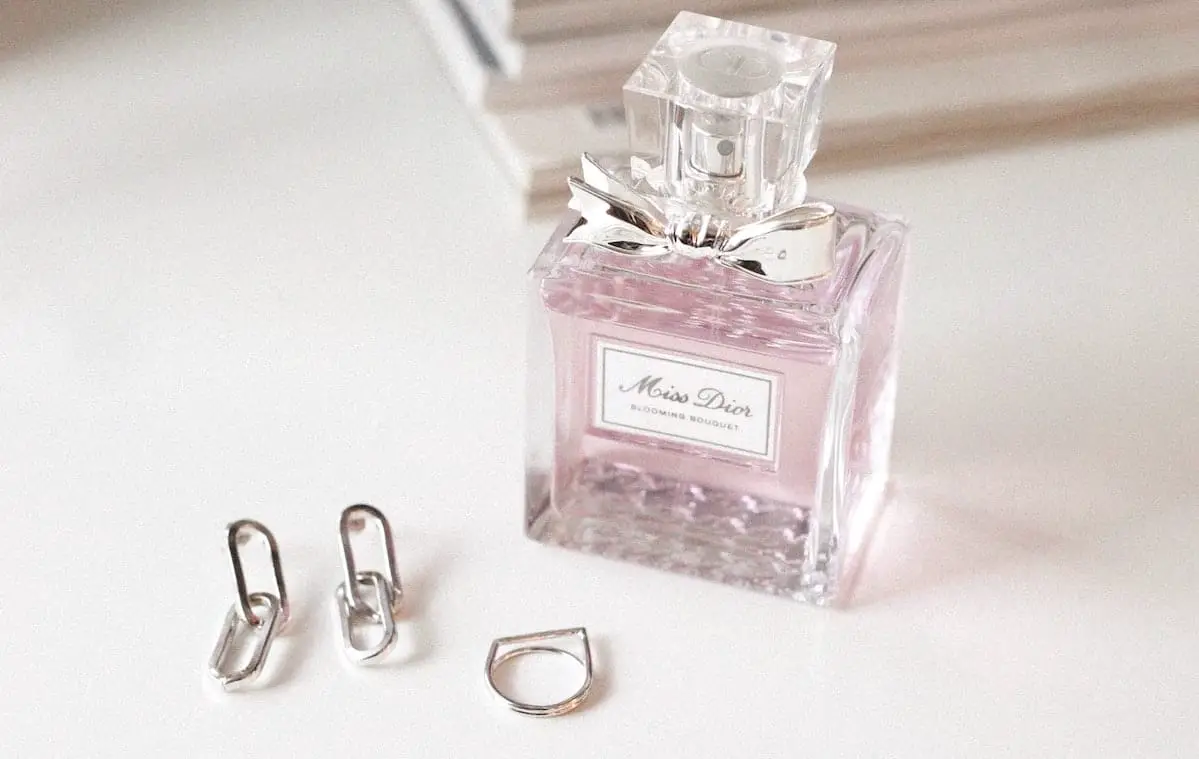Does Perfume Contain Whale Vomit? We Uncover the Truth!
If you are interested in perfumes, chances are you have heard many strange things about them. After all, expensive items are notorious for their bizarre contents. But today, we are talking about one odd ingredient that gives certain fragrances their longevity.
Perfumes do not contain whale vomit though some fragrances may contain Ambergris, which is made in whale gut and excreted into the ocean. Over time, Ambergris accumulates its signature musky scent. Nowadays, more fragrance makers rely on its lab-made equivalent.
In this article, you will learn more about Ambergris and its role in perfumes alongside clarification regarding what kind of waste Ambergris qualifies as. You will also find out whether the material is ethically sourced or responsible for whale cruelty. Keep reading!
Is Ambergris Whale Poop or Vomit?
Ambergris is formed in sperm whales’ digestive systems. Though attempts at palatable marketing position it as whale vomit, it is actually whale excrement as it comes from the same place as general whale waste. However, not all whale excrement is Ambergris, as only a small percentage of sperm whales produce it thanks to indigestion.
Why Is Ambergris Used in Perfumes?

Many people, upon learning about Ambergris for the first time, find the process quite gross. Add to that the slurry initially smells like marine excrement, only acquiring its signature fragrant odor as it ages; one wonders why the perfume industry is so obsessed with whale poop?
Ambergris is used in perfumes because its musk-like smell is long-lasting. Since it doesn’t rely on floral oils, it doesn’t have a short lifespan of scents released by flora and fauna. Coming from sperm whales, Ambergris is an organic matter with a pleasant odor that can easily mask body odor.
It also gets quite easy making great perfumes with Ambergris as the scent comes with inherent top notes and mid notes that are naturally pleasing to a human observer. With floral scents, one has to be meticulous in proportion-setting and the ingredients involved.
You’ll notice that most Ambroxide perfumes are produced by mass-market, albeit high-end brands. The rise of luxury goods as a consumer staple in first-world countries has made it necessary for perfumers to bring high-quality scents to the market without relying on materials and processes that take up too much effort.
Using Ambergris or Ambroxide is the easiest way to bypass a production bottleneck and produce a perfume that can sell tens of thousands of units while rightfully commanding a high price.
As a consumer, your preference for Ambergris has to be dictated by two factors: your personal disgust sensitivity and your ability to give perfumers the benefit of the doubt. As for disgust sensitivity, the question isn’t whether the matter smells terrible; it smells great. It also is not unhygienic at least once it is in the perfume bottle.
But if you are turned off by the fact that the substance is formed in a whale’s digestive tract, then you may simply not buy perfumes with Ambergris in them. You can still opt for fragrances with Ambroxide (lab-produced Ambergris). When it comes to ethics, the conversation is a lot more nuanced.
Ambergris and Ethics
While some fragrances today continue to use Ambergris, it has been replaced mainly by Ambroxide crafted in labs. This substance is chemically identical to the one present in Ambergris and is actually what’s responsible for the pleasant odor associated with sperm whale slurry. The move, however, isn’t driven entirely by ethics but by convenience and the need for scale.
Are Whales Killed for Ambergris?
In theory, whales can be mistreated and exploited for Ambergris, but there’s no need to hunt whales in order to obtain it. In fact, it is economically unsound to kill whales for Ambergris as it would be the equivalent of killing a golden goose for her eggs: something that would stop the inflow of more precious material.
It is in harvesters’ interests to let whales live freely in order to get a predictable amount of Ambergris. The most widely accepted method of ambergris harvesting relies on familiar ocean currents, aptly positioned harvesting stations, and storage units for aging.
Sperm whales are expected to travel a million miles over a lifetime, but they have familiar patterns. For example, they usually meet to mate around the Azores, which is the right mid-point between relatively-stationary males who prefer the arctic and the globetrotting females.
These familiar patterns allow ambergris harvesters to station around the right beaches where Ambergris is likely to wash up. The waste is excreted in a slurry that hardens and ends up on the shore. Certain shores have a higher yield, while some beaches end up with a rock or two out of sheer luck.
Random tourists have been known to find a stray piece of Ambergris that would make them a small fortune. Since dogs are especially attracted to the scent, they’re often used by harvesters to find Ambergris on the hotspot beaches.
The above process is entirely ethical and does not rely on any interference in whales’ life cycle. Still, one can never be sure whether the substance has been ethically obtained because if a whale’s been hunted for other precious organic substances like oil, meat, and bone, any ambergris in its digestive tract might also be harvested, aged, and shipped. Larger perfume brands cannot rely on unpredictable supply from hunters, so they likely avoid unethical harvesting.
Returning to the point about Ambroxide, the fragrant material is much easier to produce in a lab compared to unethically harvesting Ambergris. Whales can’t be held in captivity because the process is not feasible. And the amount of Ambergris produced by a single sperm whale cannot meet perfumers’ needs.
Unless you’re dealing with a perfumer who takes pride in attaining “elusive materials” that aren’t legal to package and ship, any Ambergris/Ambroxide perfume you may buy is most likely produced ethically. And to be sure of this, you can simply look for ones made with lab-produced Ambergris instead of natural ones because they’re indistinguishable from a chemical standpoint.
Best Ambergris Perfumes to Buy Online
Please note that I don’t speculate on how the ambergris element is obtained for these perfumes. I’m going primarily by my trained nose and relying on an Ambergris note’s presence to build the following list.
The fragrances listed below might contain organic Ambergris or synthetic Ambroxide. All I can vouch for is that you can sample a serious hint of the substance as the notes unfold.
1. Baccarat Rouge 540 by Maison Francis Kurkdijan (unisex) – If you are looking for the best perfume on the market with the Ambergris note in it, it has to be Baccarat Rouge 540. It has one of the best performances, and it is super long-lasting! I mean this thing can easily last 18-20 hours!
It has an amber-floral fragrance. The top notes of the fragrance are Bitter Almond and Saffron. The Egyptian Cedar and Jasmine as its middle notes give it a floral touch. The fragrance finally settles with a nice touch of Ambergris, Musk, and Woody Notes!
This perfume is a bit expensive due to the supposed use of natural extract of Ambergris (Brand Baccarat Rouge is known for using natural ingredients), but the quality of the perfume is worth every single cent!
2. Aqua Di Parma Ambra – The Signatures of The Sun collection pays homage to different kinds of historic perfume-making. This edition, to no one’s surprise, is about Ambergris. However, that doesn’t mean it smells like concentrated Ambergris.
The scent’s top notes are citric and earthen, gradually unfolding into the marine and the wooden. It closes on Ambergris and fades into musk.
3. Jo Malone Dark Amber & Ginger Lily Cologne Intense – Woody and Earthy notes dominate this fragrance, with the Ambergris element acting like the wax that brings them all together into a cohesive symphony.
More Related Topics
- Should Perfume be Sprayed on Skin or Clothes? A Definitive Guide!
- 9 Best Perfumes for a Date! [For Him & Her]
- Deodorant vs Perfume: What’s the Difference? [Complete Guide!]
- Is Perfume a Good Gift? [With Options for Every Occasion!]
- Does Perfume Stain Your Clothes? [With Tips to Avoid the Stains!]
- 13 Reasons Why Your Perfume Fades So Quickly!
Credit to Rudolf Kirchner (on Pexels) for the Featured Image of this Article

![Should You Wear Perfume to a Funeral? [Is it Appropriate?]](https://styleuphq.com/wp-content/uploads/2021/09/woman-with-lily-flowers-and-coffin-at-funeral-PM62BEU-optimized-1200x800.jpeg)

![Does Apple Watch Drain Phone Battery? [Here’s How to Stop It!]](https://styleuphq.com/wp-content/uploads/2022/05/Depositphotos_82859080_XL-Apple-Watch-and-iPhone.webp)


![How Long Does Apple Watch Take to Charge? [Complete Guide!]](https://styleuphq.com/wp-content/uploads/2022/05/Depositphotos_411188904_XL-Apple-Watch-Charging-1.webp)